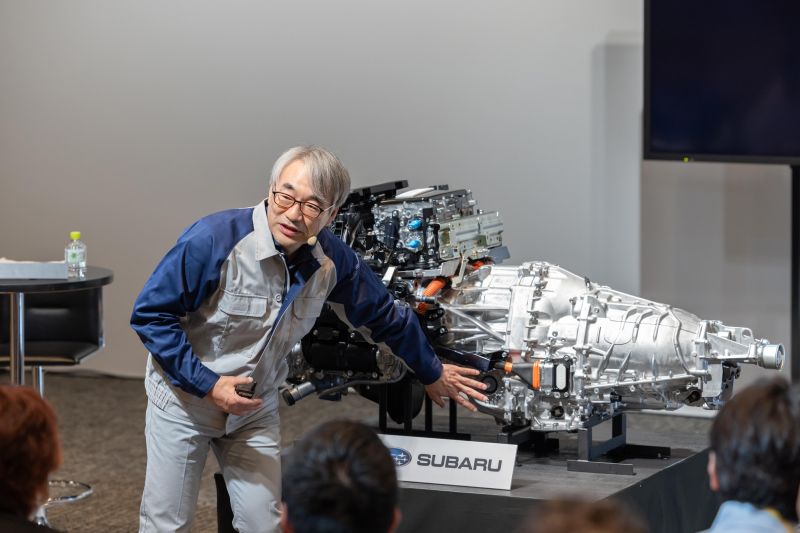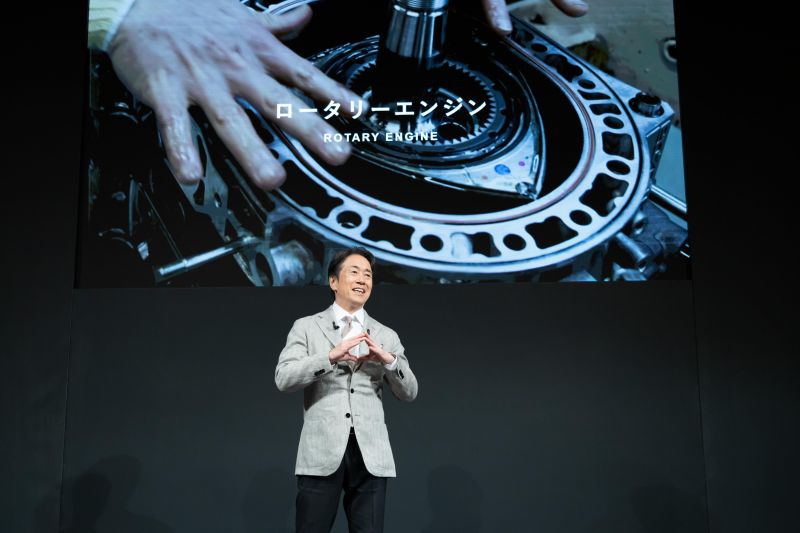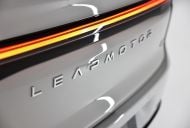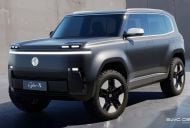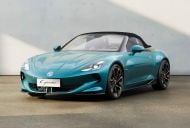Three of Japan’s biggest carmakers have declared they’ll continue to build petrol and diesel engines for as long as feasibly possible, despite the auto industry’s switch to electric power.
Toyota, Mazda and Subaru released a joint media statement overnight, committing to the development of lower-emissions internal combustion engines (ICEs) which will lean on hybrid assistance and the use of synthetic fuels.
“With these engines, each of the three companies will aim to optimise integration with motors, batteries, and other electric drive units,” the brands announced.
“While transforming vehicle packaging with more compact engines, these efforts will also decarbonize ICEs by making them compatible with various carbon-neutral fuels.”
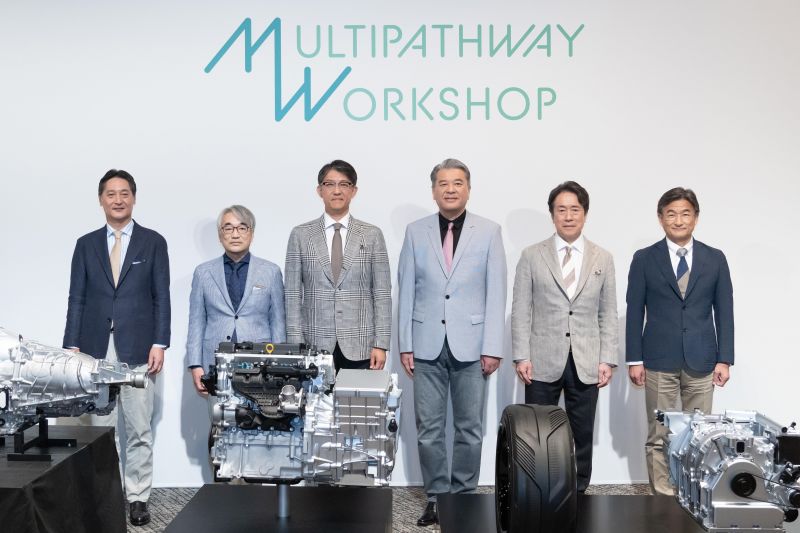
Left to right: Atsushi Osaki, Subaru representative director, president and CEO; Tetsuo Fujinuki, Subaru director, senior managing executive officer and CTO; Koji Sato, Toyota president, member of the board of directors and CEO; Hiroki Nakajima, Toyota executive vice president and CTO; Masahiro Moro, Mazda representative director, president and CEO; Ichiro Hirose, Mazda director, senior managing executive officer and CTO
According to the trio, this decision to push on with ICE power comes from “a deep understanding of their customers’ diverse lifestyles”, which will lead to the development of engines which “not only represent their respective brands but also cater to their customers’ unique needs and preferences”.
Toyota previewed two engines in the announcement: a 1.5-litre (available in both naturally aspirated and turbocharged guise) and a 2.0-litre turbo.
Automotive News reports the 1.5-litre will succeed the carmaker’s current identical-displacement engines, though it’ll not only occupy 10 per cent less space but also provide “big fuel efficiency gains” in naturally aspirated guise.
The 2.0-litre turbo meanwhile will replace Toyota’s current 2.4-litre turbo engine and offer more power while using less fuel, both in comparison to the larger unit currently in production but also the brand’s existing 2.0-litre offerings.
Toyota, the world’s largest carmaker by volume, has previously shown its multi-pronged approach towards emissions reduction.
The brand has tested hydrogen-fuelled versions of its performance engines in racing cars, while also continuing to develop hybrid drivetrains which accounted for a staggering 3.42 million of the Toyota Motor Corporation’s 11.23 million global sales in 2023.
Mazda (of which 5.1 per cent is owned by Toyota) and Subaru (which Toyota owns 20 per cent of) have recently adopted more of the larger carmaker’s emissions-cutting technology, including Toyota’s industry-leading hybrid systems.
Hybrids will continue to be a major focus for the three brands moving forward, with each claiming their next-generation ICE models will benefit from more efficient, powerful and compact powertrains.
“Smaller engines will allow for even lower hoods, improving design possibilities and aerodynamic performance while contributing to better fuel efficiency. The development will also emphasise compliance with increasingly strict emissions regulations.
“Even as Subaru, Toyota, and Mazda compete in the product arena with unique engines and cars, the companies have a shared dedication to achieving carbon neutrality through a multi-pathway approach. Together with like-minded partners similarly skilled and passionate about engines, they will work to create the future of Japan’s auto industry.”
It’s worth noting all three carmakers have been criticised for their slow uptake of electric vehicles (EVs).
At present, the Toyota bZ4X and Subaru Solterra twins under the skin are those respective brands’ only EVs on sale in Australia, while the Mazda MX-30 was pulled from sale locally last year after just three years due to low demand.
MORE: Everything Toyota
MORE: Everything Mazda
MORE: Everything Subaru





